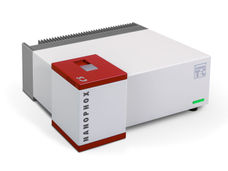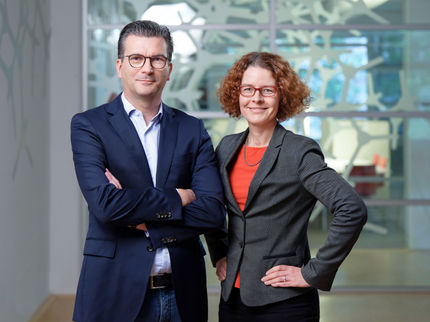Researchers from BASF and KIT jointly develop integrated processes to produce nanostructured functional materials
Partners cooperate on new processes and materials, e.g. for heterogeneous catalysis or organic electronics
The Karlsruhe Institute of Technology (KIT) and BASF SE have founded “IP3” (innovative products, intelligent particles, integrated processes), a joint laboratory for process technology in Karlsruhe. JointLab is run by the two partners on an equal footing, initially for a period of five years. Funds totaling around €8 million are provided by BASF, KIT and the Federal State of Baden-Württemberg. In its introductory phase, the IP3 Team will comprise 20 research scientists including eleven PhD students; initially five institutes of KIT are incorporating their know-how and infrastructure in the cooperative venture. IP3 is organized on a decentralized basis to ensure that the partners' competences are effectively and efficiently utilized and to allow future needs-oriented expansion.
“We have established JointLab at the KIT with the aim of further intensifying the long history of excellent cooperation between Karlsruhe University and BASF's research units,” emphasizes Professor Dr. Rainer Diercks, Head of BASF's Competence Center Research and Technology Chemicals. “If we want to pursue new directions in developing integrated processes leading from the feedstock to the finished material, we need a high level of competence in the field of particle technology and closemeshed cooperation within a team of interdisciplinary research scientists – requirements that are met outstandingly well by JointLab.”
Diercks sees numerous potential applications for the nanostructured functional materials being developed at IP3, for example in organic electronics, as pigments, agrochemicals and medicines or as catalysts.
“Only processes that are well understood can be purposefully developed and adapted to new applications. This is why the combination of principle-based research and application-focused development is particularly promising in these projects,” explains Professor Dr. Gerhard Kasper, Head of the Gas Particles Systems division at the Institute of Mechanical Process Technology and Mechanical Engineering at KIT.
The researchers at JointLab are employing cutting-edge methodologies to investigate process components, allowing them to be subsequently upscaled and interconnected specifically for each application like a construction kit. The aim is to produce particulate materials with structures which, although extremely small, can be controlled very precisely by process management. Only the high accuracy and reproducibility of a nanoscale production process allows the optimally adapted functionality decisive for implementing many innovative product ideas. The scientists involved also see improved opportunities for sustainable production of known materials: precisely controllable processes utilize valuable raw materials economically and ensure the safe handling of nanoparticles right along the line to the packaged product.
Topics
Organizations
Other news from the department science
These products might interest you

NANOPHOX CS by Sympatec
Particle size analysis in the nano range: Analyzing high concentrations with ease
Reliable results without time-consuming sample preparation

Eclipse by Wyatt Technology
FFF-MALS system for separation and characterization of macromolecules and nanoparticles
The latest and most innovative FFF system designed for highest usability, robustness and data quality

DynaPro Plate Reader III by Wyatt Technology
Screening of biopharmaceuticals and proteins with high-throughput dynamic light scattering (DLS)
Efficiently characterize your sample quality and stability from lead discovery to quality control

Get the chemical industry in your inbox
By submitting this form you agree that LUMITOS AG will send you the newsletter(s) selected above by email. Your data will not be passed on to third parties. Your data will be stored and processed in accordance with our data protection regulations. LUMITOS may contact you by email for the purpose of advertising or market and opinion surveys. You can revoke your consent at any time without giving reasons to LUMITOS AG, Ernst-Augustin-Str. 2, 12489 Berlin, Germany or by e-mail at revoke@lumitos.com with effect for the future. In addition, each email contains a link to unsubscribe from the corresponding newsletter.



























































